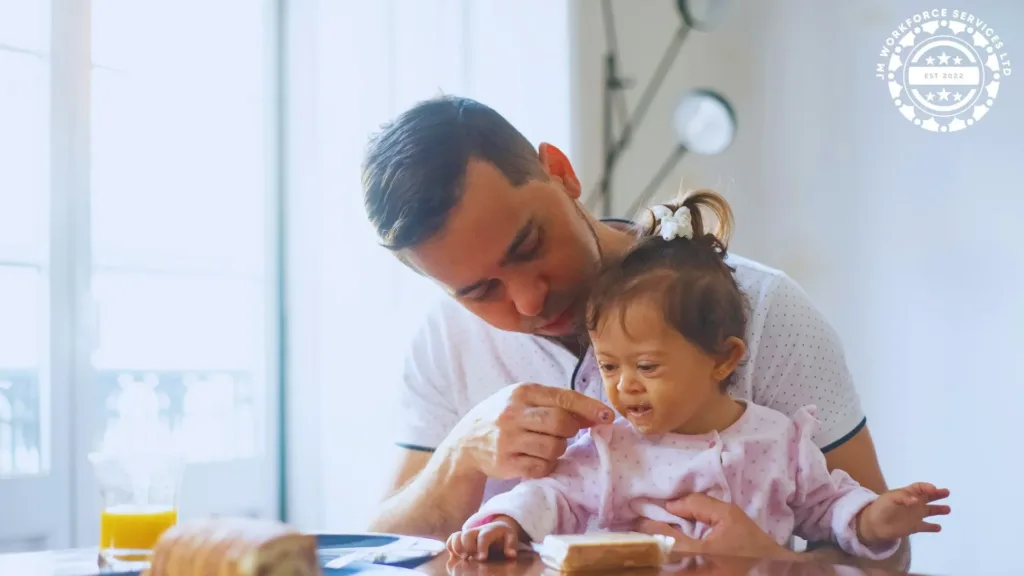Working with disabled children requires a unique set of skills, understanding, and patience. These children may face physical, mental, or developmental challenges, and the right support can help them thrive. Whether you’re a caregiver, teacher, or therapist, mastering the essential skills for working with disabled children is crucial in providing the best care and fostering their growth.
In this blog, we will explore the key skills that can help you connect with disabled children, support their development, and create an environment where they feel empowered and valued.
Understanding the Needs of Disabled Children
The first and most fundamental skill for working with disabled children is having a deep understanding of their unique needs. Children with disabilities may have specific medical, emotional, or developmental requirements that differ from those of other children.
Each child is unique, so it’s essential to approach their care with flexibility, compassion, and an open mind. Understanding their specific challenges allows you to tailor your approach to meet their needs effectively. This might involve learning about their condition, communication preferences, or how they process sensory information.
Patience and Empathy
Patience and empathy are perhaps the most vital skills for working with disabled children. Children with disabilities may face barriers to communication, mobility, or social interaction, which can lead to frustration. As a caregiver or educator, it’s important to remain patient and empathetic during these moments.
Being empathetic allows you to connect with the child on a deeper level and understand their experiences, which can help build trust and rapport. Patience allows you to give them the time and space they need to learn, grow, and express themselves without feeling rushed or pressured.
Effective Communication Skills
Effective communication is an essential skill for working with disabled children. Many disabled children face challenges with verbal communication, so it’s important to be flexible in your approach. This may include using sign language, picture boards, or other alternative communication methods to help the child express their needs and feelings.
Active listening is also an important aspect of communication. Pay attention to non-verbal cues like body language and facial expressions, which can provide valuable insights into the child’s emotions or needs. By being attentive and responsive, you create a supportive environment where the child feels heard and understood.

Problem-Solving and Adaptability
Working with disabled children often requires quick thinking and the ability to adapt to new situations. Every child is different, and challenges may arise that require creative problem-solving. Whether it’s finding a new way to help a child with a physical limitation or adapting activities to suit their abilities, being resourceful and flexible is a key skill.
Adaptability also involves adjusting your expectations to match the child’s pace and abilities. While it’s important to set goals, it’s equally important to celebrate small milestones and be flexible in how you approach the child’s development.
Promoting Independence and Self-Esteem
A core aspect of working with disabled children is promoting their independence and boosting their self-esteem. Encourage the child to participate in activities and tasks that they can complete on their own, no matter how small. This could be something as simple as dressing themselves, feeding themselves, or completing a simple task independently.
Building self-esteem in disabled children involves reinforcing their strengths, celebrating achievements, and providing positive reinforcement. By focusing on their abilities rather than their disabilities, you help them develop a sense of pride and confidence in themselves.
Knowledge of Behavioral Management Techniques
Many children with disabilities may have difficulty controlling their impulses or managing their behavior. Having a solid understanding of behavioral management techniques is an important skill for working with disabled children. Positive reinforcement, clear expectations, and consistent routines can help children manage their behavior in a supportive and respectful way.
It’s also essential to be aware of any behavioral triggers the child may have and to be proactive in addressing them before they escalate. Maintaining a calm, controlled approach and reinforcing good behavior in a positive manner helps foster a safe and structured environment.
Creating an Inclusive Environment
Creating an inclusive environment is an important skill for working with disabled children. This means making adjustments to physical spaces, learning materials, and social settings to ensure that all children feel welcome and supported. Whether in a classroom, home, or community space, fostering inclusivity helps disabled children feel like they are part of the group, reducing feelings of isolation or exclusion.
Ensure that the environment is accessible, whether that means having ramps for wheelchair users, sensory-friendly spaces for children with autism, or quiet areas for children who may get overwhelmed. Inclusivity also involves promoting understanding and acceptance among peers, so disabled children feel valued and respected.

Collaboration and Teamwork
Working with disabled children often involves collaborating with other professionals, including therapists, doctors, educators, and family members. Being able to work as part of a team is a vital skill for working with disabled children. Each team member brings unique expertise, and by working together, you can provide comprehensive care and support for the child.
Collaboration also extends to involving the child’s family in the care process. Working with families to create consistent routines and strategies both at home and in other environments is essential for the child’s success.
Conclusion
Mastering the essential skills for working with disabled children is crucial for providing the best care, support, and opportunities for growth. By fostering understanding, communication, empathy, and inclusivity, you can help disabled children reach their full potential. These children are capable of achieving great things with the right support, and the skills you develop can make a lasting impact on their lives.
For more information and support, visit JM Workforce, where we offer resources and expertise in helping disabled children thrive in every aspect of their lives.
FAQs
1. What are the most important skills for working with disabled children?
The most important skills include patience, empathy, effective communication, problem-solving, and an understanding of behavioral management techniques. These skills help build trust, foster independence, and ensure children feel valued.
2. How can I encourage a disabled child to become more independent?
Encourage independence by providing opportunities for the child to perform tasks on their own, such as dressing, feeding, or completing chores. Positive reinforcement and celebrating their accomplishments are key to building confidence and self-esteem.
3. How can I communicate effectively with a child who has communication difficulties?
Use alternative communication methods, such as sign language, picture boards, or technology-assisted devices. Pay attention to non-verbal cues and practice active listening to understand the child’s needs and emotions.
4. What role does creating an inclusive environment play in supporting disabled children?
An inclusive environment ensures that disabled children feel welcome and valued. It includes making spaces accessible and promoting understanding and acceptance among peers, which helps reduce feelings of isolation.
5. Why is teamwork important when working with disabled children?
Teamwork allows professionals, caregivers, and families to collaborate, sharing knowledge and strategies to provide the best possible care for the child. It ensures that all aspects of the child’s development are addressed and supported effectively.






